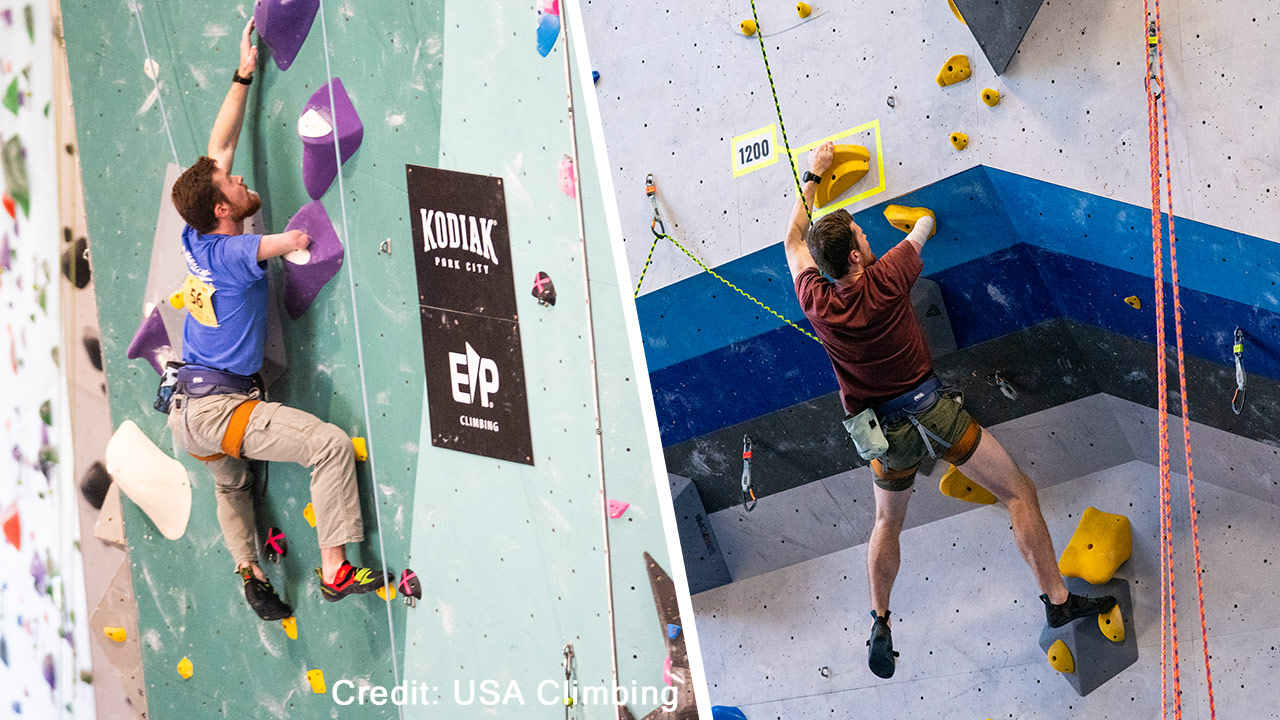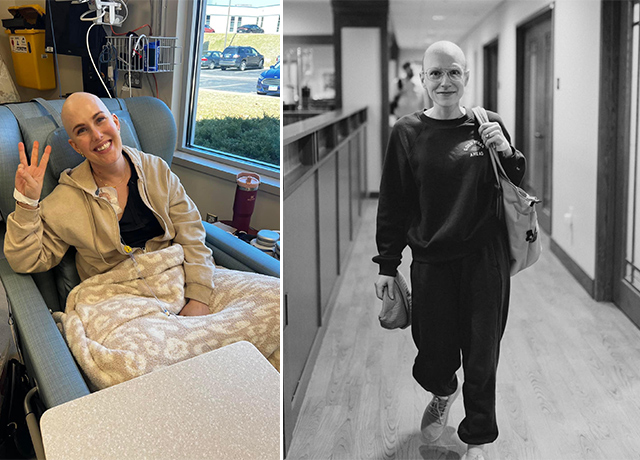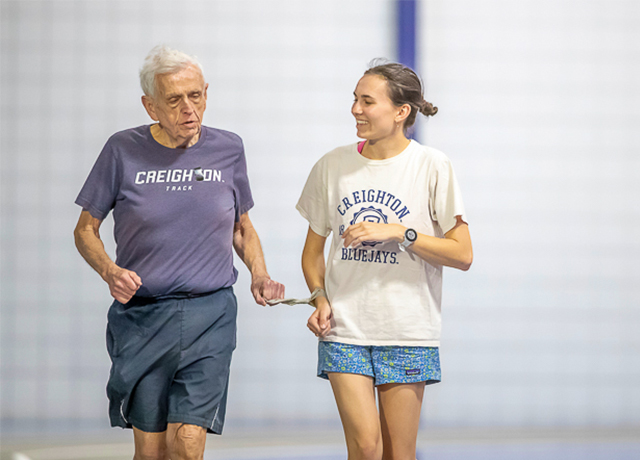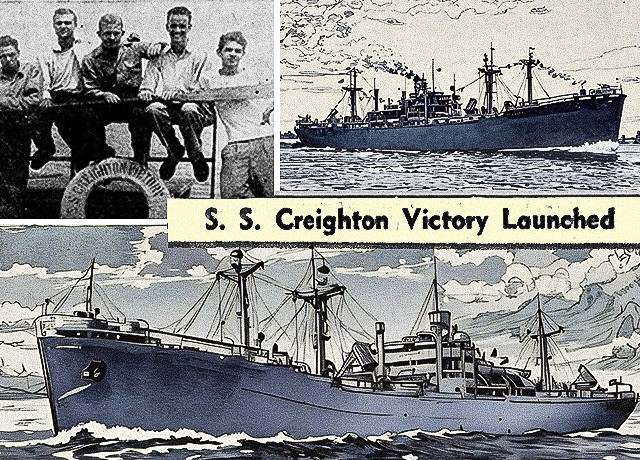Featured Testimonial About Creighton University
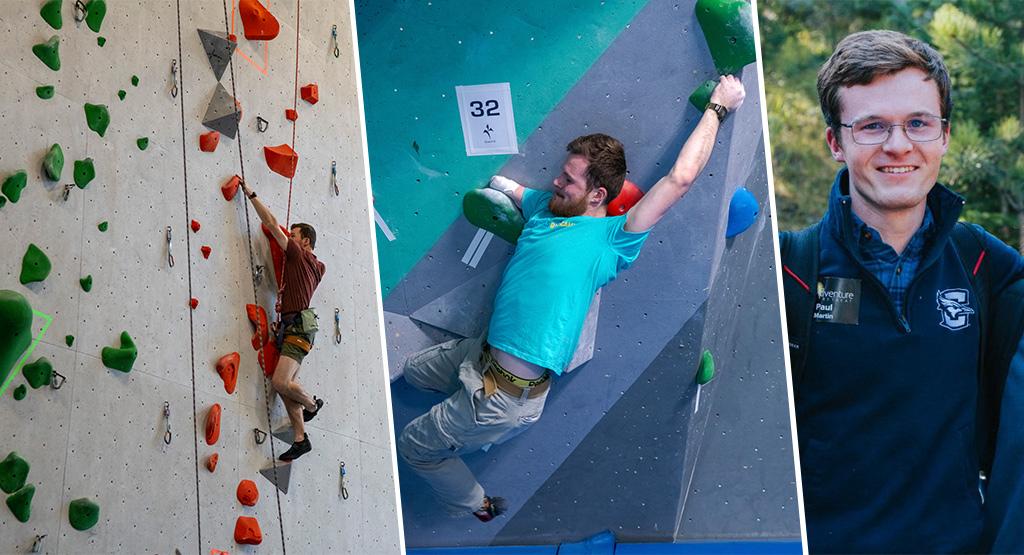
With climbing, the thing that you have in common isn't what you're missing, it's what you're doing and the people that are doing it in similar ways to you. It’s really genuinely fun and empowering.
By Jon Nyatawa
Creighton alumnus Paul Martin had six minutes to study the 60-foot-high rock wall and chart out the fastest way to maneuver himself toward the top. Then he had to wait.
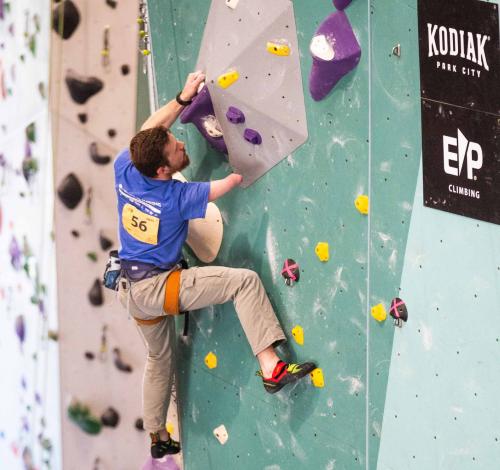
That’s how these para climbing events are structured. No phones, no TVs. You can’t even watch the other competitors make their attempts.
Your goal: Climb as high as you can, until you lose your grip.
So, there were a few nerves at this event back in March for Martin, who was born without his right arm at the elbow and has really only been climbing for a couple years. It was his first-ever trip to the USA Para Climbing National Championships, and his only chance this year to qualify for the other major competitions on the sport’s 2025 calendar.
“You have this six-minute memory, and then you're spending your time thinking, ‘OK, this part looks tricky’ and ‘How am I going to get that done?’” Martin said. “And then after you've been stewing for however long while other people are climbing, they eventually call you out. You get to give it your go and see how you do.”
Martin did great.
He placed first in his division at nationals, winning a gold medal and earning a spot on the Team USA’s para climbing team. He’s set to compete next in the International Federation of Sport Climbing’s World Cup in May in Salt Lake City. He’ll have three more international events before year’s end.
“I had a little bit of experience, but that was my first, real, official event, and it obviously went pretty well,” said Martin, BA’22, MED’24.
Watch Martin’s championship-winning climb below (his climb starts at the 1:32:30 mark)
The success has surprised Martin a little bit, although he did figure out early on how well this sport suits him. His brothers had been trying to persuade him to try it. He just never saw himself as an athlete.
But what’s neat about climbing, Martin said, is the analytical, problem-solving aspect of each ascent. Plus, he couldn’t have predicted how welcoming and supportive the adaptive climbing community would be. And, how natural it would feel for him to discover a new passion — and really go for it.
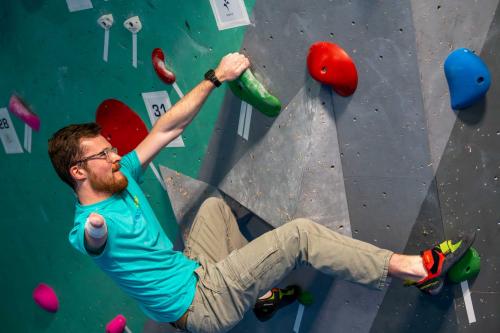
“I didn’t want to be part of an amputee or disabled community where the thing we had in common was what we were missing,” he said. “But with climbing, the thing that you have in common isn't what you're missing, it's what you're doing and the people that are doing it in similar ways to you. It’s really genuinely fun and empowering.”
Not that Martin was ever lacking for any self-assurance.
Martin knew before he enrolled at Creighton that he wanted to teach. He eventually found his specialty as he completed his humanities courses in the Creighton Honors Program, and interacted with mentors like associate professor Faith Kurtyka, and went through the Magis Catholic Teacher Corps program. He’s now a high school English teacher in Pine Ridge, S.D.
Growing up, he played soccer and baseball. He was the 6-year-old kid who daringly climbed the tree in the backyard – and had to later explain to his parents how he got a scratch from a branch.
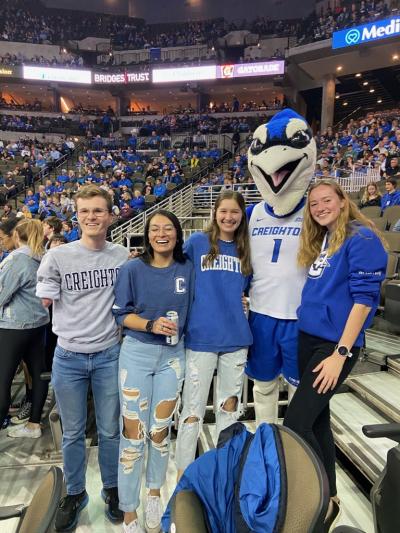
He still has a blast when he gets a chance to captivate on-lookers with his typing skills. He’ll get to 60 words per minute on his specialized keyboard.
There was one night inside a Swanson Hall neutral zone when Martin was talking with new friends about his limb difference and the impact it’s had on his life. Someone asked, “is there anything you can’t do, Paul?”
His response: “Monkey bars.”
The room erupted with laughter.
But Martin is doing more than monkey bars now.
Martin drives about an hour to a climbing gym each weekend. He’s trained some with his fellow Team USA para climbing members in Denver. He’ll do some recreational rock climbing in the Black Hills occasionally. And there are tons of in-home core and finger strengthening workouts.
He’s expecting to face off against better climbers at his upcoming events, so he’s practicing hard. Perhaps he’ll even have a shot at the Paralympic Games in Los Angeles in 2028.
“The open question now is, how am I going to stack up against international competition?” Martin said. “I am anticipating definitely a tougher struggle than at nationals. But I surprised myself at nationals. Maybe I'll surprise myself at the World Cup.”
* * *
Learn more about Martin's journey here
